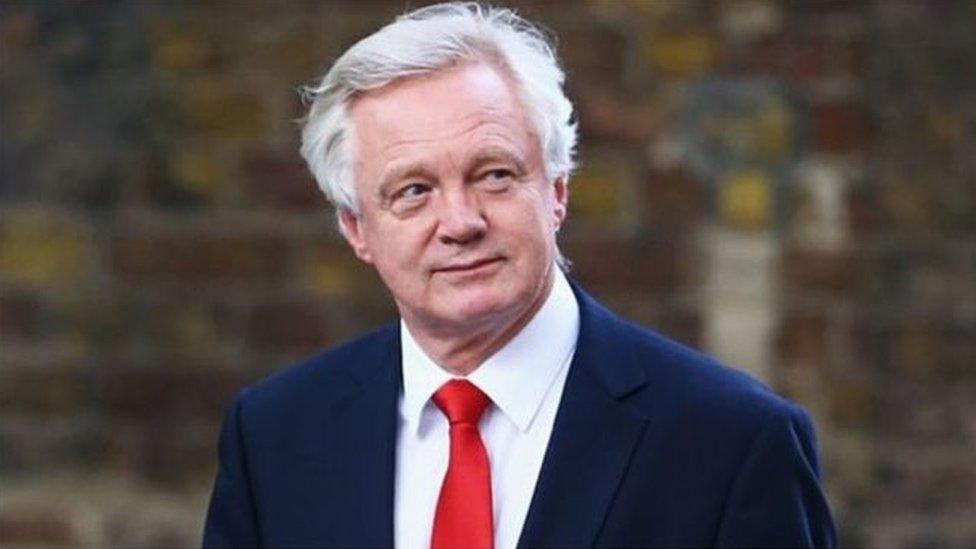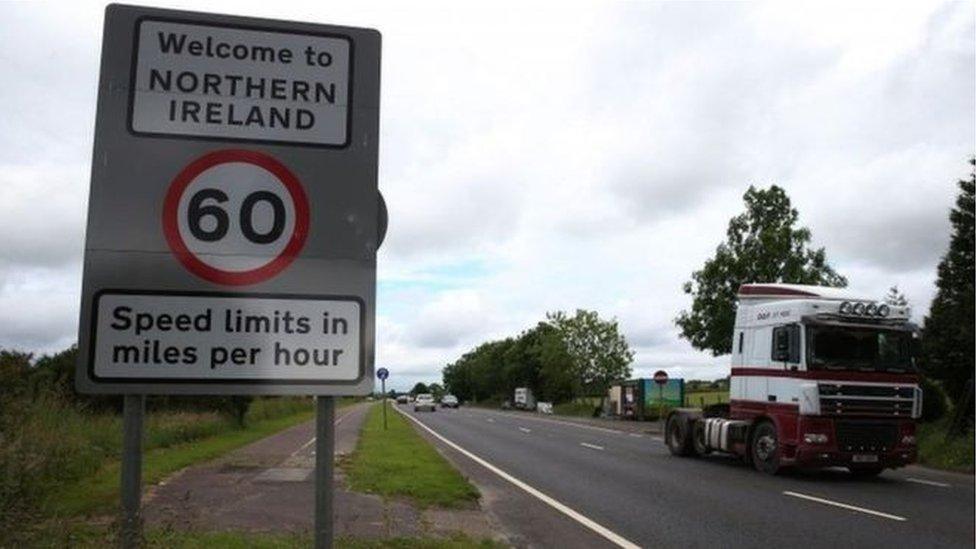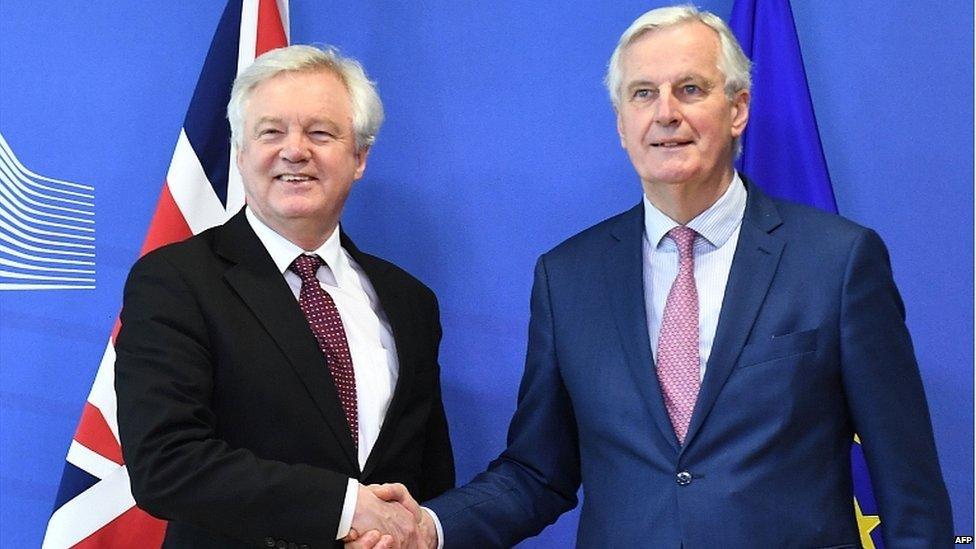Brexit: UK won't accept EU's border backstop text
- Published

The UK has accepted the need for a backstop
The Brexit Secretary David Davis has said the UK will agree to a 'backstop' text for the Irish border, but not the one proposed by the EU.
In February it was proposed Northern Ireland stay in the customs union or single market if there was no other way to maintain a soft border.
The UK has accepted the need for a backstop to be written into the Brexit withdrawal agreement.
Mr Davis said a backstop option would be found.
He went on to say that it was "overwhelmingly likely" that the border issue would be solved in the context of a trade and customs agreement.
Speaking on the Andrew Marr Show, Mr Davis also defined a hard border as "a very visible border, with customs posts on it".
Mr Davis was asked about a report by the Commons Brexit committee, which found no evidence to suggest that there is currently a technical solution that would avoid infrastructure at the border.
He said trusted trader schemes and technological options would be able to maintain an invisible border.
Standstill
"There are ways of dealing with this. You can't just say 'we haven't done it anywhere else' - we haven't attempted to do it anywhere else," he said.
Talks will begin in Brussels on Monday which are aimed at reaching a deal on what will happen with the Irish border.
EU and UK negotiators will discuss customs, food safety, animal health and the regulation of other goods.
Further talks will take place next month with EU leaders due to assess progress at their next summit in June.
Last week those leaders agreed to a 21-month Brexit transition period between March 2019, when the UK officially leaves, and the end of 2020.
It is effectively a standstill deal which means the UK will continue to follow EU rules in that period and have unimpeded access to the single market.
However the transition period will only be implemented if there is also a deal on the border.
Meanwhile the Labour Party is proposing an amendment to Brexit legislation to guarantee there will be no infrastructure on the border.
The amendment would mean enshrining in law the political commitment made in December to avoid a hard border.
Shadow Brexit Secretary Keir Starmer told The Observer, external: "At the end of last year, the EU and UK government made a political agreement that there would be no hard border in Northern Ireland.
"However, the content of the withdrawal agreement is not legally binding.
"It is a political document subject to negotiation and will not have legal force unless and until it is ratified - which is by no means a done deal."
The plan could take the form of an amendment to the European Union (Withdrawal) Bill currently going through the House of Lords.
Mr Starmer said he had "yet to meet anybody credible who genuinely thinks you can avoid a hard border if you're not in a customs union."
- Published20 March 2018

- Published19 March 2018
